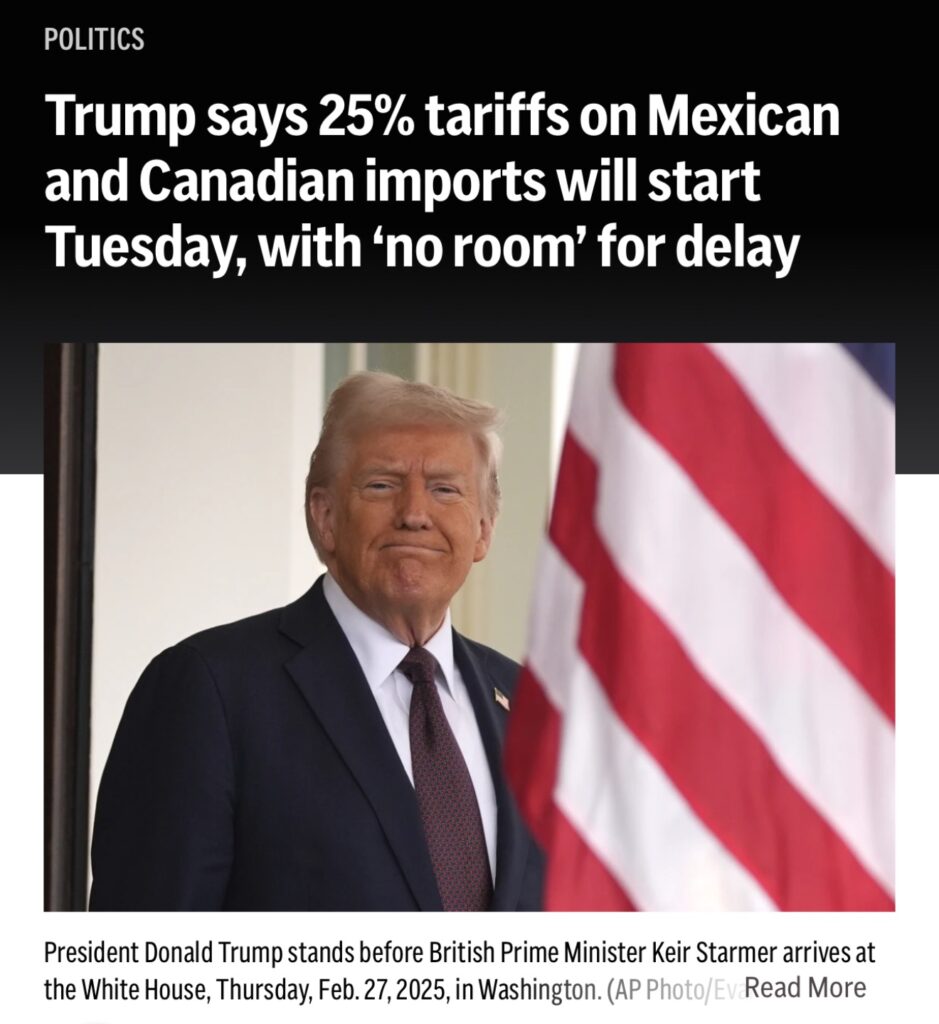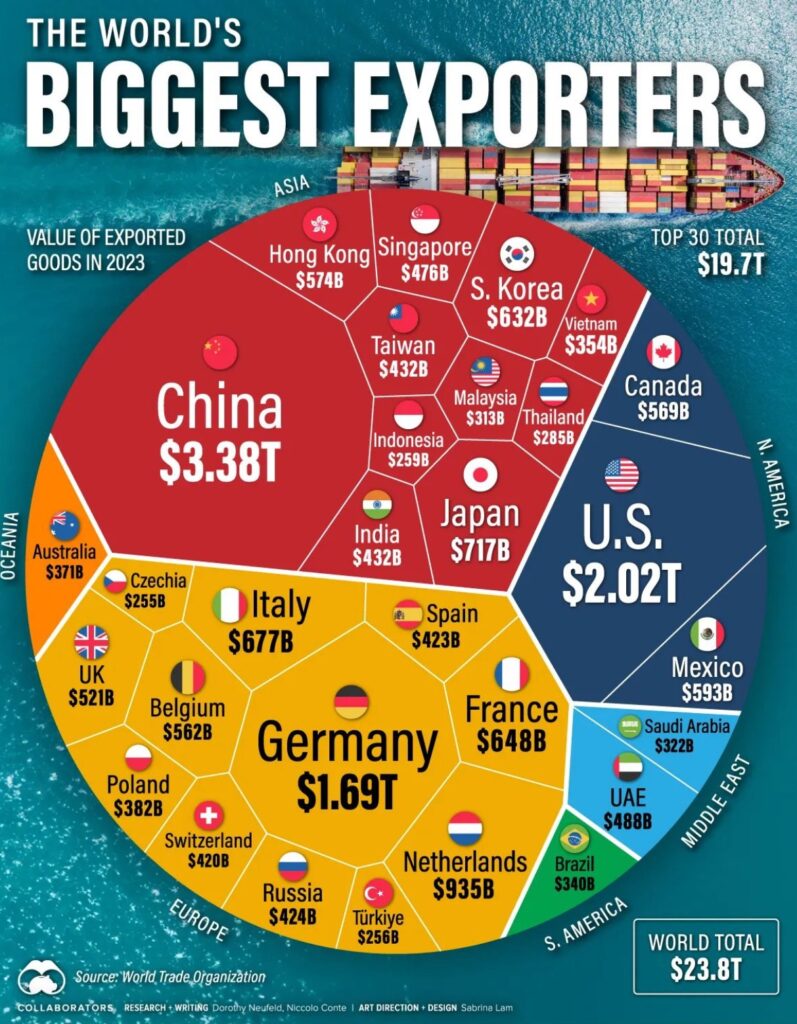US tariffs have come into force of 25% against goods from Canada and Mexico, the US’s two biggest trading partners, Canadian prime minister Justin Trudeau said Ottawa would respond with immediate 25% tariffs on C$30bn ($20.7bn) worth of US imports

”Canada will not let this unjustified decision go unanswered”
Justin Trudeau
A statement from Canadian Prime Minister Justin Trudeau’ office outlines the retaliation. ”Canada will not let this unjustified decision go unanswered. Should American tariffs come into effect tonight, Canada will, effective 12:01 a.m. EST tomorrow, respond with 25 per cent tariffs against $155 billion of American goods – starting with tariffs on $30 billion worth of goods immediately, and tariffs on the remaining $125 billion on American products in 21 days’ time. Our tariffs will remain in place until the U.S. trade action is withdrawn, and should U.S. tariffs not cease, we are in active and ongoing discussions with provinces and territories to pursue several non-tariff measures. While we urge the U.S. administration to reconsider their tariffs, Canada remains firm in standing up for our economy, our jobs, our workers, and for a fair deal.”
Read more here: Canada response on tariffs
President Donald Trump today said that 25% tariffs on imports from Mexico and Canada will start Tuesday, sparking renewed fears of a North American trade war.

US tariffs against Canada and Mexico that were put on holdduring a last-minute agreement are set to go into effect at midnight and the universal tariff charged on imports from China will double to 20%.

“Tomorrow tariffs 25% on Canada and 25% on Mexico. And that’ll start,” Trump told reporters in the Roosevelt Room. Trump has said the tariffs are to force the two U.S. neighbors to step up their fight against fentanyl trafficking into the U.S.

In addition there will be a 20% tariff on China.
Source:AP/Spectator
These are the Top Exporting Nations:
- China Leads: $3.4T in exports, surpassing the U.S. by $1.4T.
- Global Dip: Exports fell 5% to $23.8T amid rising trade barriers.
- U.S. Energy Surge: $65B net energy surplus boosted its trade balance.
- Germany Hit: Rising costs slowed exports despite $1.7T total.
- Tariff Threats: U.S. policies may cut Germany’s key exports by 30%+.

Read more: https://lnkd.in/gXzuH8hw
Source:MaritimeAnalytica






You must be logged in to post a comment.